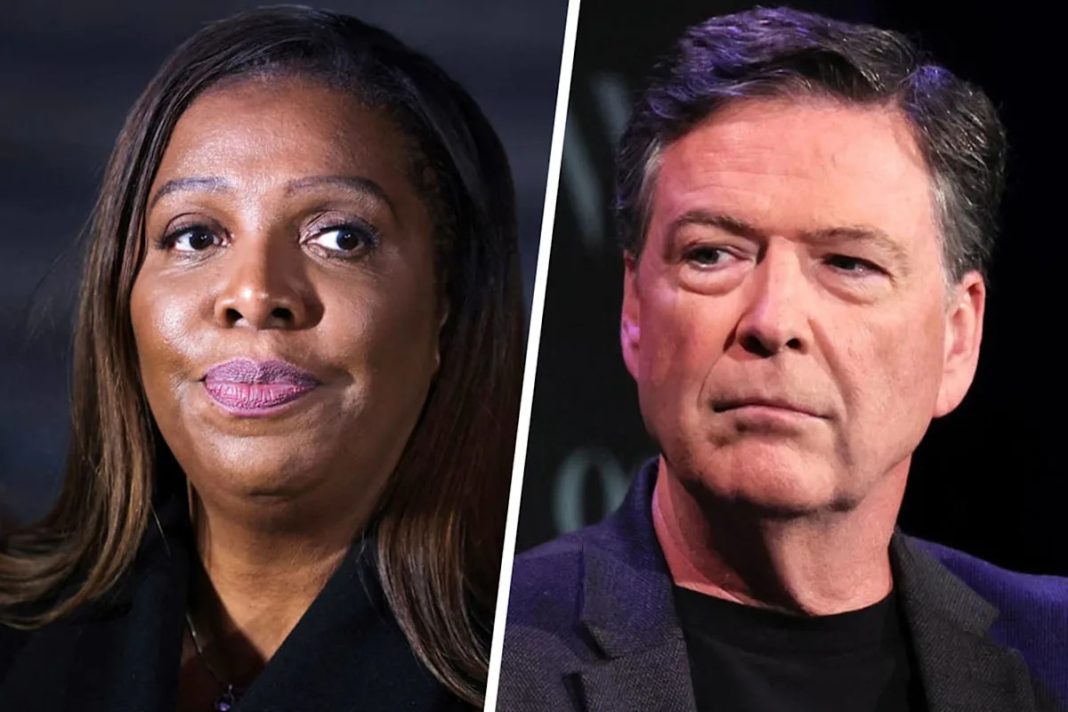One of the most memorable exchanges from “The Simpsons Movie,” which came out in 2007, involved a scene in which Bart suffers a humiliation and has to wait for his dad to pick him up and take him home.
“This is the worst day of my life,” Bart says, at which point Homer quickly offers his son a painful reminder. “It’s the worst day of your life so far,” he says.
The rejoinder came to mind anew this week watching developments unfold inside Donald Trump’s Justice Department.
Two weeks ago, when an unqualified Trump loyalist secured an indictment against former FBI Director James Comey, it was widely characterized as the most obvious example in history of a politically motivated DOJ prosecution. Fourteen days later, we were reminded that it was really just the most obvious example of a politically motivated DOJ prosecution so far. MSNBC reported:
A Virginia grand jury on Thursday indicted New York Attorney General Letitia James on bank fraud charges following intense pressure from President Donald Trump to bring the case. … James was charged with bank fraud and making false statements to a financial institution, according to the indictment.
The parallels between the James and Comey cases are striking.
In the latter, Trump spent months targeting the former FBI director and pressuring his team to bring criminal charges against his perceived foe. When the Trump-nominated U.S. attorney for the Eastern District of Virginia balked, and career prosecutors explained in detail and in writing that the evidence didn’t support charging Comey, the president expressed indifference to the rule of law.
Indeed, Trump published a public appeal to Attorney General Pam Bondi, telling her that Comey was “guilty as hell” of unidentified crimes and directing her to go after him.
“I just want people to act,” the president told reporters soon after, referring to federal law enforcement officials. “They have to act, and we want to act fast. … We have to act fast.”
To pursue his overtly political goal, Trump ousted a U.S. attorney who refused to obey and replaced him with the White House’s Lindsey Halligan (an insurance lawyer with zero prosecutorial experience), who proceeded to do what the president wanted her to do: She acted fast and charged someone who’d dared to cross Trump.
With James, the circumstances were effectively identical.
Trump spent months targeting the state attorney general and pressuring his team to bring criminal charges against his perceived foe. When the Trump-nominated U.S. attorney for the Eastern District of Virginia balked, and career prosecutors explained in detail and in writing that the evidence didn’t support charging James, the president again expressed indifference to the rule of law.
Trump published a public appeal to Bondi, telling her that James was “guilty as hell” of unidentified crimes and directing her to go after the New York Democrat.
Soon after, Halligan again did what the president wanted her to do: She acted fast and charged someone who’d dared to cross Trump.
None of this is subtle. Both cases are brazenly and transparently corrupt, for the sake of brazen and transparent corruption.
The indictments are plainly what they appear to be. A failing, desperate and unpopular president wanted critics to be charged, without regard for merit; he publicly demanded the indictments; and he found officials who were willing to feed his appetite for revenge.
As we’ve discussed, Trump and his confederates aren’t hiding their weaponization of the criminal justice system, they’re flaunting it. They want everyone to notice. They need other White House critics to be afraid, and other federal prosecutors to understand that they’ll soon be unemployed unless they play ball the way Halligan did.
The corruption is the point.
There might be half-hearted denials, issued with winks and nods, but by design, everyone should already be painfully aware of what is plainly true: The authoritarian crisis has arrived. We now live in a country where the president’s political opponents are prosecuted at his command.
Alan Rozenshtein, a former department official who now teaches at the University of Minnesota Law School, told The New York Times, “What we are seeing is the almost wholesale collapse of the Justice Department as an organization based on the rule of law.”
Those comments came two weeks ago, in the immediate aftermath of the Comey charges. Now, the question isn’t whether Trump and his team are gutting the rule of law, it’s who’ll be the next person on the president’s enemies list to face a federal indictment.
This post updates our related earlier coverage.
This article was originally published on MSNBC.com

